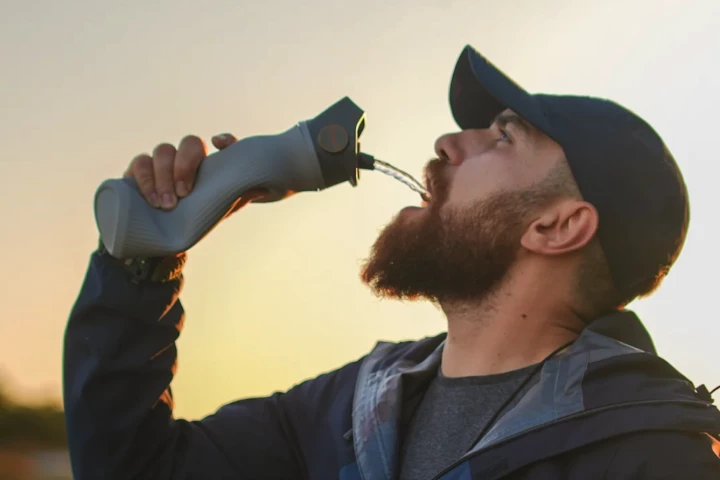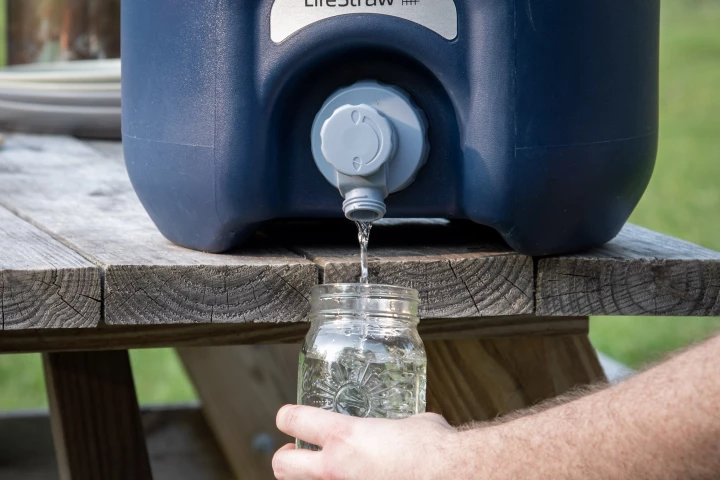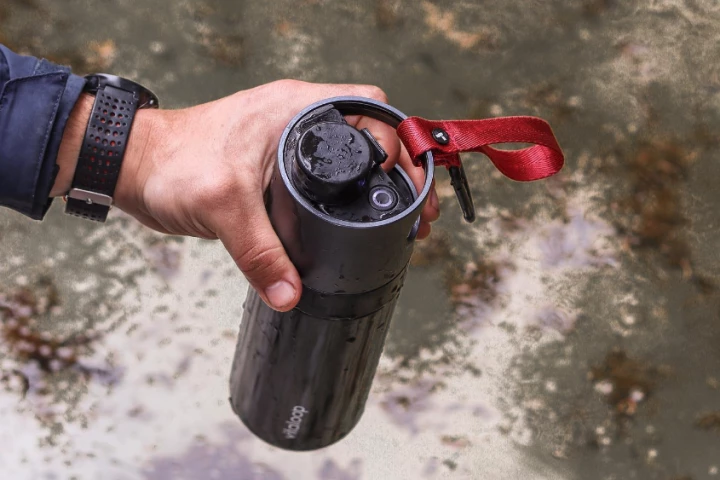Filter
-
Looking to best other squeezable filter bottles, the Oassay FlexFlow uses a compact filter to remove tiny viruses, bacteria, heavy metals, hydrocarbons and even fluoride. The bottle passes water at drinkable flow rates for seamless hydration.
-
We know Lifestraw best for lightweight, ultraportable water filter and purification products aimed at backcountry use, but its all-new Escape is a different beast. The jug supplies groups with over 5 gallons of clean drinking water per fill-up.
-
The new Vitaloop Defender bottle uses an all-in-one design to collect, purify and deliver water. Its five-part filtration system and battery-powered pump turn water from a lake or river into potable drinking water at the push of a button.
-
Hydrapak's new Flux+ packs water filtration capability into one of the most portable collapsible bottles out there. It carries 1.5 L of water into the wild, refills and filters from natural sources, and packs tiny when it's not in use.
-
With the new UltraPress Ti, Grayl injects its titanium know-how into its original water filter bottle design, creating a versatile tool that can quickly purify water and cook over a fire. It's a lightweight, hardwearing food-and-beverage multitool.
-
Engineers at the University of Vienna have developed a new composite material that makes an efficient filter for removing organic pollutants from water. The system uses super-porous “nano-sponges” embedded on a sheet of graphene.
-
Engineers at Dartmouth College have developed a new crystal structure that can stretch to twice its size when it encounters a specific chemical. The team says that the material could be used to selectively absorb impurities in water.
-
MIT researchers have found yet another use for the over-achieving wonder material graphene, by making a reusable filter out of graphene oxide foam that acts like a magnet for uranium, effectively pulling the radioactive element out of drinking water.
-
It looks like something straight out of dystopian sci-fi, but then here we are. Biotlab has presented a neck-mounted wearable that provides you with a range of magnetic face shields, and a personal supply of HEPA-filtered, UV-sterilized air.
-
Researchers at the University at Buffalo have developed a new method for 3D printing graphene aerogels that work well as water filters. The team says this technique helps make graphene aerogels scalable and stable enough to be used over and over.
-
It can be difficult to separate water from oil, which makes water pollution tricky to clean up. Now, researchers at North Carolina State University have found that a bacterial biofilm membrane can effectively let water through while keeping oil out.
-
Researchers at Rice University have developed a new air filter made of graphene foam, which can kill captured microbes with small zaps of electricity.
Load More











